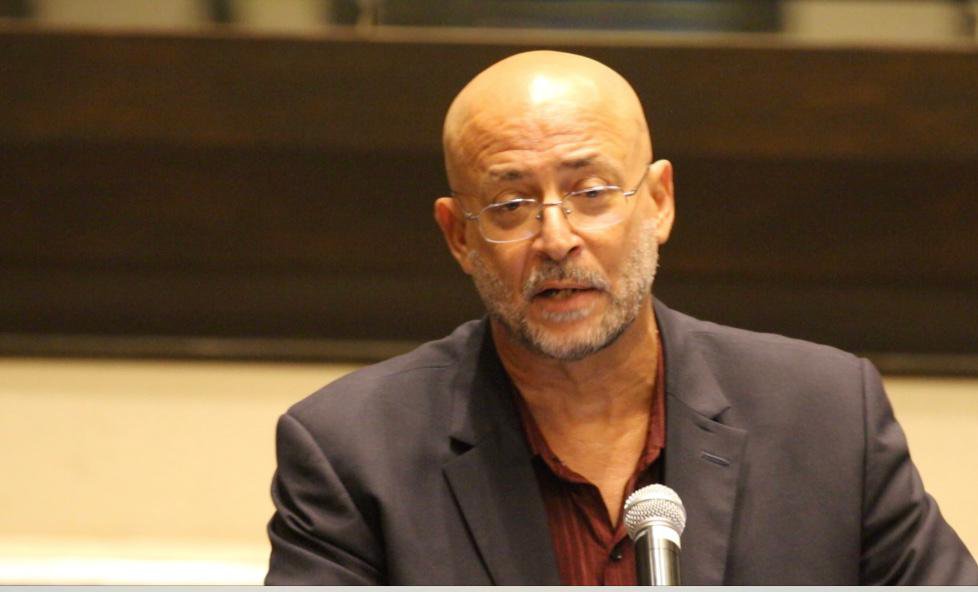BRIDGETOWN, Barbados, CMC – The 10-point plan to rescue the game in the Caribbean has become a list of 16 outcomes, which Cricket West Indies president Ricky Skerritt said is achievable over the next decade, if he has his way.
Skerritt said he firmly believes that sticking to the “Cricket First Philosophy” and implementing the “West Indians First” policy that helped to sweep him and vice president Dr. Kishore Shallow to victory in March 2019 will produce results.
The CWI president was speaking on the topic “Reforming Cricket West Indies for Improved On-field Results” during the 20th annual Frank Worrell Memorial Lecture, which was virtually hosted by the Cave Hill campus of the University of the West Indies through its Faculty of Sport.
“The ‘Cricket First’ philosophy and the ‘West Indians First’ policy, which are interconnected and inextricable, together mandate that the revival of West Indies cricket should be developed around West Indian talent, culture, and heritage,” he said
“…and should aim to always achieve excellence and pride in the best of what it means to be a West Indian.”
He added: “All of CWI’s key cricket decisions must be designed to develop that sense of pride and aspiration for our representative West Indies teams that has been too often absent over these past 20 years.
“In order to achieve a renewed sense of purpose and excellence within CWI, difficult choices and challenging decisions will have to be made.”
Skerritt listed high among the outcomes “a modern and fit-for-purpose corporate governance system, which is consensus- oriented, accountable, transparent, responsive, equitable, inclusive and results in the best decision-making”.
He also envisaged “CWI, all of its cricket teams and its various technical intervention programmes, led by competent and empowered professionals, mostly of West Indian origin with respect for our proud history and culture, and with strategic minds and winning attitudes”.
Skerritt said he expected to see “a well-organised grassroots programme in every member territory, jointly funded by government, private sponsors and the local cricket association, with technical inputs and standards from CWI as needed.
He also anticipates children “wanting to play and enjoy cricket, and getting opportunities to do so through relevant school, community and club leagues and programmes – with young boys and girls enjoying and learning the game with technical oversight by committed and competent coaches, trained centrally through CWI’s own coaching education and development programmes”.
Skerritt said he hoped to see cricket-loving children “encouraged to do well academically, with access to cricket and other sports activities being used as rewards and platforms for learning”.
He also identified “CWI – in partnership with private sponsors – delivering regional age group tournaments commercially branded as the future stars and rising stars of West Indies cricket, with mentoring inputs from past players and a busy overseas tours programme for emerging players being exposed to international environments and good competition in advance of selection to the senior team as important outcomes.
Skerritt said “closer monitoring and improved collaboration with the regional franchise system to ensure adherence to minimum standards for coaching and for player fitness and health; and territorial boards committed to improving communication, teamwork and regional cooperation, minimising insularity and focussed less on cricket politics and more on local grassroots development and growth of the sport” was also vital to success.
The CWI president said another important outcome will be “a player remuneration and contractual system that rewards outstanding performance, recognises future potential and frowns on mediocrity”, noting that “player welfare must also be at the foundation of such a remuneration system”.
Skerritt said “a modern research and science-based high-performance programme, delivered through a network headquartered at the Coolidge Cricket Ground (CCG) in Antigua, and operated in partnership with regional higher learning institutions, focussed on preparing and up-skilling individual players and coaches, and preparing representative teams for winning performances” was another intended outcome.
He said he also wanted to see in the future “head coaches commencing strategic planning, team building and technical preparation for competing in ICC Cricket World Cup events, a minimum of 18 months ahead of the actual event”.
Skerritt said a target of “achieving at least 60 percent of winning results in all three formats, with ICC rankings never lower than the top five, and with several elite male and female West Indian players ranked within the top 20 players in the world” was also a desired outcome.
He said “CWI, and its subsidiary CCG, to be transformed into a sustainably financed and efficiently led and operated corporation, employing the best available professionals, adhering to global standards of governance at all levels of operations, and engaging productively with all shareholders and stakeholders” was another outcome.
Skerritt said it was important that “cricket fans of all ages being engaged and re-energised to love West Indies cricket, with the establishment of a highly motivated and organised supporters club” and “an efficient, creative and modern public communications system, producing and delivering relevant and interesting stories of past, present, rising, and emerging West Indies cricketers and team performances” were two critical outcomes.





